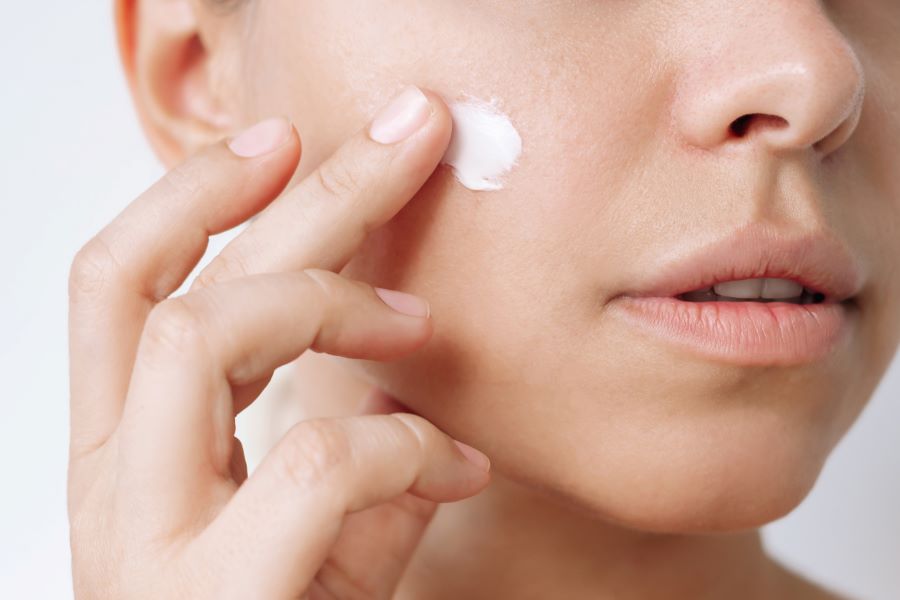Beauty Sleep: The Science of Nighttime Skin Renewal
In the realm of beauty and wellness, one often-overlooked yet crucial aspect of our daily routine holds the key to radiant, youthful skin: sleep. While we've long known that a good night's rest is essential for overall health, recent scientific discoveries have unveiled the intricate processes of nighttime skin renewal. This fascinating field of study, known as chronobiology, explores how our bodies' natural circadian rhythms influence skin health and regeneration. As we delve into the science of beauty sleep, we'll uncover the secrets of nocturnal skin repair, explore cutting-edge sleep-enhancing products, and reveal how to optimize your nighttime routine for maximum skin benefits.

Nocturnal Skin Repair Mechanisms
When we enter deep sleep, our bodies release growth hormones that stimulate cell production and renewal. This increased cellular activity leads to faster skin repair and regeneration. Additionally, melatonin, often called the “sleep hormone,” acts as a powerful antioxidant, neutralizing free radicals and reducing oxidative stress on skin cells. The nighttime hours also see a surge in blood flow to the skin, delivering essential nutrients and oxygen to support repair processes.
The Role of Sleep Stages in Skin Health
Not all sleep is created equal when it comes to skin benefits. Research has shown that the different stages of sleep play unique roles in skin renewal. During the initial stages of light sleep, the body begins to relax, and blood flow to the skin increases. As we progress into deep sleep, growth hormone production peaks, stimulating collagen synthesis and cell turnover. The final stage, REM sleep, is crucial for overall bodily repair and may contribute to improved skin elasticity and hydration.
Sleep Deprivation and Skin Aging
The consequences of insufficient sleep extend far beyond dark circles and puffy eyes. Chronic sleep deprivation can accelerate skin aging by disrupting the natural repair processes that occur during rest. Studies have shown that poor sleep quality is associated with increased signs of intrinsic aging, including fine lines, uneven pigmentation, and reduced skin elasticity. Furthermore, lack of sleep can lead to increased inflammation and compromised skin barrier function, making the skin more susceptible to environmental damage and dehydration.
Optimizing Your Sleep Environment for Skin Health
Creating an ideal sleep environment is crucial for maximizing the skin benefits of beauty sleep. Start by ensuring your bedroom is cool, dark, and quiet. Invest in high-quality, breathable bedding that wicks away moisture and regulates temperature. Consider using a humidifier to maintain optimal air moisture levels, which can prevent skin dehydration during sleep. Additionally, silk or satin pillowcases can reduce friction and help prevent sleep wrinkles and hair breakage.
Nighttime Skincare Rituals for Enhanced Renewal
To capitalize on the skin’s natural repair processes, it’s essential to develop a targeted nighttime skincare routine. Begin with thorough cleansing to remove makeup, pollutants, and excess oil. Follow with a toner to balance the skin’s pH and prep it for subsequent treatments. Nighttime is ideal for applying active ingredients like retinoids, peptides, and antioxidants, as they can work uninterrupted without exposure to UV radiation. Finish with a rich, nourishing moisturizer to lock in hydration and support the skin’s barrier function throughout the night.
Innovative Sleep-Enhancing Beauty Products
The beauty industry has recently seen a surge in sleep-focused products designed to maximize nighttime skin renewal. From overnight masks that deliver intense hydration to pillowcases infused with skin-nourishing ingredients, these innovative products aim to enhance the skin’s natural repair processes. Some cutting-edge formulations even incorporate chronobiology research, timing the release of active ingredients to coincide with the skin’s peak receptiveness during different sleep stages.
The Mind-Body Connection: Stress, Sleep, and Skin
The intricate relationship between stress, sleep quality, and skin health cannot be overstated. Chronic stress can disrupt sleep patterns, leading to increased cortisol production, which in turn accelerates skin aging and exacerbates inflammatory skin conditions. Incorporating stress-reduction techniques such as meditation, deep breathing exercises, or gentle yoga into your bedtime routine can improve sleep quality and, consequently, skin health.
Nutritional Support for Beauty Sleep
What you eat and drink in the hours leading up to bedtime can significantly impact both sleep quality and skin health. Avoid caffeine, alcohol, and heavy meals close to bedtime, as they can disrupt sleep patterns. Instead, opt for sleep-promoting foods rich in tryptophan, magnesium, and melatonin, such as cherries, kiwi, and nuts. Staying hydrated is crucial, but be mindful of your fluid intake timing to prevent nighttime bathroom trips that could interrupt your sleep cycle.
Future Directions in Sleep and Skin Science
As our understanding of the relationship between sleep and skin health deepens, researchers are exploring exciting new avenues. Current studies are investigating the potential of sleep-synchronized skincare delivery systems, wearable technology that optimizes sleep for skin benefits, and personalized sleep-beauty protocols based on individual circadian rhythms. These advancements promise to revolutionize our approach to nighttime skincare and unlock new possibilities for achieving radiant, youthful skin through the power of beauty sleep.
In conclusion, the science of nighttime skin renewal offers a fascinating glimpse into the complex relationship between sleep and skin health. By understanding and harnessing the power of our body’s natural circadian rhythms, we can optimize our sleep and skincare routines to achieve truly transformative results. As research in this field continues to evolve, one thing remains clear: beauty sleep is not just a catchy phrase, but a scientifically backed cornerstone of effective skincare.






